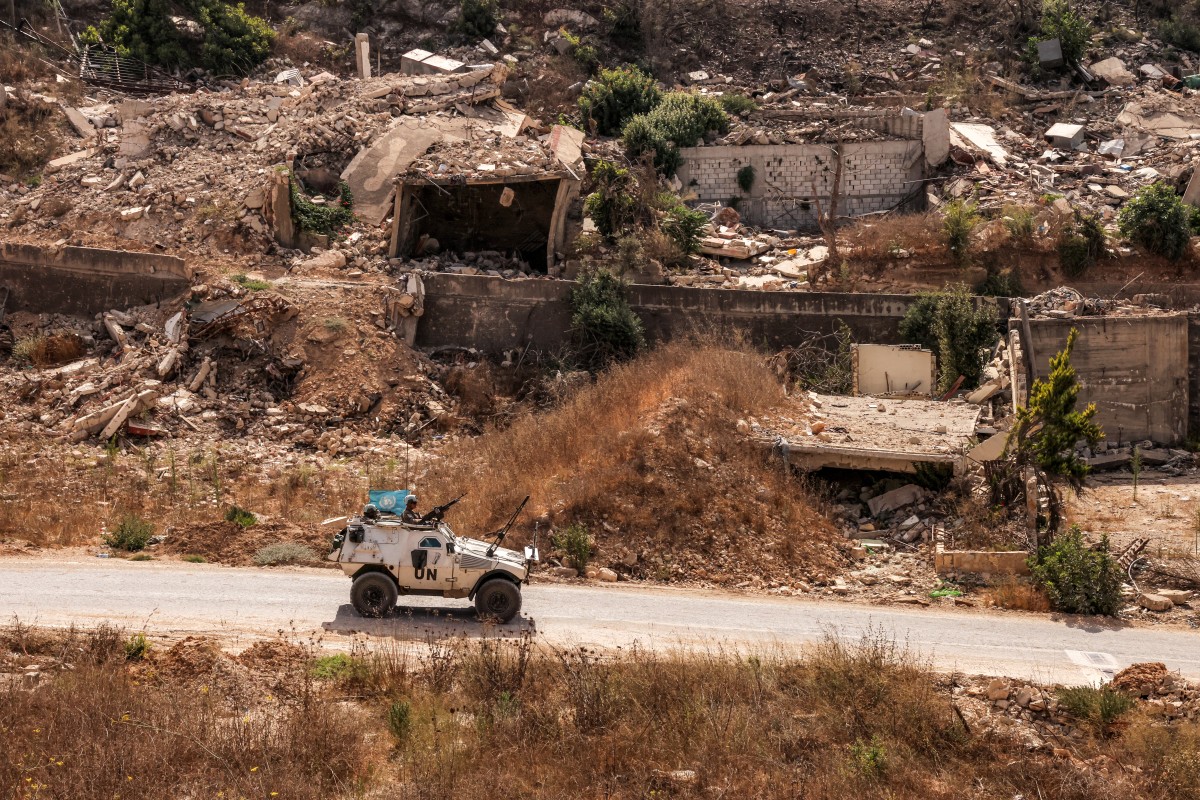In an era where slogans have collapsed under the weight of reality, Lebanon appears to stand before a choice that no longer tolerates ambiguity: either it listens to the voice of reason expressed by President Joseph Aoun, or it remains hostage to slogans that consume what is left of a country that can no longer endure proxy wars. In a Middle East that never tires of surprises, “Hezbollah” seems to wake up every morning to a new shock, discovering that the world is no longer persuaded by its slogans and that its patron in Tehran now needs someone to console it rather than someone to seek protection from. Between Syrian President Ahmad al-Sharaa’s visit to the White House, Washington’s talk of establishing a military base in al-Mezzeh near Damascus, and another in the Gaza Strip, it seems that the “Axis of Resistance” retains nothing of resistance except its name, and nothing of an axis except turning in circles.
A Truce on the Edge of War
All this unfolds as the first anniversary approaches of the cessation-of-hostilities agreement signed by Lebanon and Israel on November 27 of last year, under warnings that the occasion risks turning into yet another recurring funeral ceremony if the concerned parties do not heed the voice of reason, especially as the Israeli press does not hesitate to describe the agreement as “ink on paper” and reports that Israel is once again brandishing the threat of war, while “Hezbollah” struggles to catch its breath amid the rubble of the south. Amid this turbulent scene, President Joseph Aoun’s words emerged as a breath of realism in an age of slogans. He affirmed that Lebanon has not yet received any Israeli response to the negotiation option he proposed for liberating the land, nor any clear American position on the matter, noting that he is awaiting the arrival of the new U.S. ambassador to Beirut “who may bring an Israeli answer,” then added a sentence that summarizes the entire national stance: “The logic of force no longer works, and we must move toward the force of logic.” He continued, asking with striking clarity: “If we are not capable of going to war, and war has led us to calamities, and there is a wave of settlements in the region, then what are we supposed to do?”
The Lebanese File in American and Syrian Hands
As for Syria, President Aoun reassured that “talk of handing Lebanon over to Syria is neither justified nor necessary,” noting that Syria’s stability is essential for Lebanon’s stability and that the meeting between U.S. President Donald Trump and Syrian President Ahmad al-Sharaa is a positive development, since lifting American sanctions on Syria “would benefit Lebanon as well.” This official Lebanese position dispelled reports suggesting that the Lebanese file might be handed over to Damascus under an emerging U.S.-Syrian understanding that redraws lines of influence in the region.
Mezzeh and Gaza: Two American Bases or a Dual Threat to the Iranian Axis?
There is no doubt that the increasing talk of a potential American military base in al-Mezzeh, just a few kilometers from the Syrian presidential palace, is no longer mere rumor. The meaning is clear: those who once raised anti-American slogans are now experiencing post-sanctions life under its aerial umbrella. Conversely, the idea of another base in the Gaza Strip is emerging for the post-war phase, serving as a permanent outpost monitoring Iran, “Hamas,” and “Hezbollah” simultaneously. In doing so, Washington places all parties of the “Axis of Resistance” within its direct radar range, while the “party” no longer enjoys the luxury of claiming it is “liberating Jerusalem from the southern suburbs.” In Tel Aviv, Israeli officials do not hide their desire to break the “thorn of Iran” before the end of Trump’s second term. The Israelis understand that the moment is favorable and that American support is unprecedented, while the Iranian regime faces its worst economic and political crises.
Hurley in Beirut: Illicit Money Tightens the bolt on the “Party”
The visit of U.S. Deputy Treasury Secretary John Hurley to Beirut served as a final, uncompromising warning. He stressed that Washington will not allow a single dollar to reach Lebanon’s reconstruction unless “Hezbollah” is fully disarmed and its Iranian funding is cut off entirely. These are not mere financial sanctions but a systematic strategy to dry up the organization’s arteries, from monitoring money-exchange offices to freezing implicated accounts, in an attempt to deprive the “party” of the tools that made it a state within a state. Thus, the Lebanese file today seems to move between capitals as if it were an investment dossier rather than a sovereign matter. The state that was supposed to hold the reins has become hostage to regional balances, and a “party” that claimed to protect sovereignty has allowed it to be managed by external proxies. Yet President Joseph Aoun’s words may mark the beginning of an exit from this tunnel, reminding that the “force of logic” can repair what the “doctrine of force” has destroyed, and that dialogue and realism are the only two paths to save Lebanon from being placed once again on the maps of others rather than the maps of its own people… and good intentions remain the guiding purpose.
Please post your comments on:
[email protected]
 Politics
Politics







